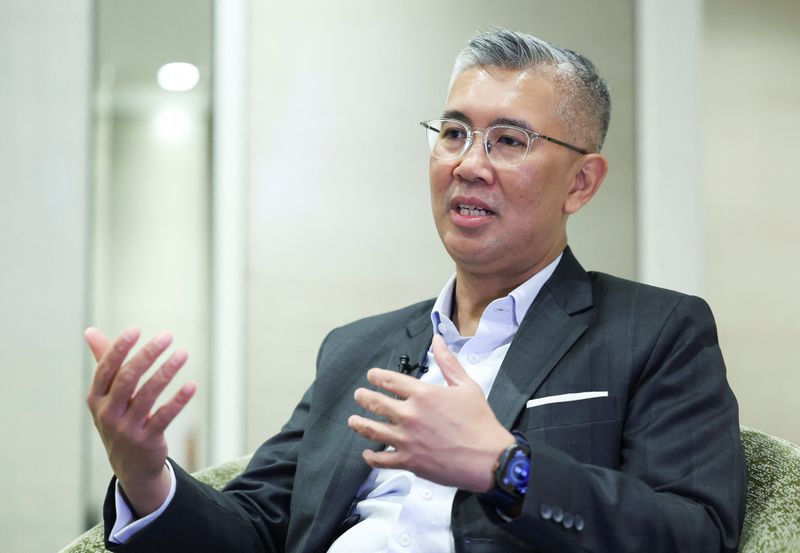Malaysia says RCEP bloc to consider adding new members, improve trade deal
By Danial Azhar
KUALA LUMPUR (Reuters) -The China-backed Regional Comprehensive Economic Partnership (RCEP) will consider adding new members and discuss ways to improve trade flows when its leaders meet for the first time in five years in October, Malaysia’s trade minister said on Monday.
Malaysia plans to hold a summit of the RCEP, the world’s largest trade bloc, when it hosts the annual gathering of the Association of Southeast Asian Nations in Kuala Lumpur.
The RCEP – which includes all 10 ASEAN members as well as China, Japan, South Korea, Australia, and New Zealand – has not held an official leaders’ meeting since November 2020, when they signed a trade deal aimed at lowering tariffs, boosting investment and allowing freer movement of goods within the region.
The RCEP has been seen by some analysts as a potential buffer against tariffs imposed by U.S. President Donald Trump‘s administration. The October meeting is likely to coincide with a visit by Trump to Kuala Lumpur to attend the ASEAN summit.
Malaysia’s Investment, Trade and Industry Minister Tengku Zafrul Aziz said the meeting will allow members to suggest improvements to the RCEP trade deal and consider requests from some countries to join the bloc.
“We want to focus on issues that will help RCEP members,” Tengku Zafrul told Reuters in an interview ahead of an ASEAN economic ministers meeting this week.
China has called on countries in the region to embrace multilateral frameworks such as the RCEP to counter the impact of the U.S. tariffs.
Tengku Zafrul said given ASEAN and RCEP members all supported multilateralism, he wasn’t worried about the meeting being “hijacked” by China.
“To be fair to Malaysia and ASEAN member states, and even other RCEP members, they have said the same thing. I mean, Korea, Japan, New Zealand, Australia and all have stated their views on multilateralism,” he said.
“So whether China will hijack the agenda, I don’t think so, because there’s nothing new in our belief about that principle.”
Trump’s tariff drive has seen levies of between 10% and 40% placed on goods from Asian countries, with the majority of major ASEAN economies leveled with a rate of 19%.
The U.S. tariffs are also expected to be a key point of discussion during the ASEAN ministers gathering this week, which will be attended by U.S. Trade Representative Jamieson Greer.
(Additional reporting by Mandy Leong Huey Mun; Writing by Rozanna Latiff; Editing by John Mair)


